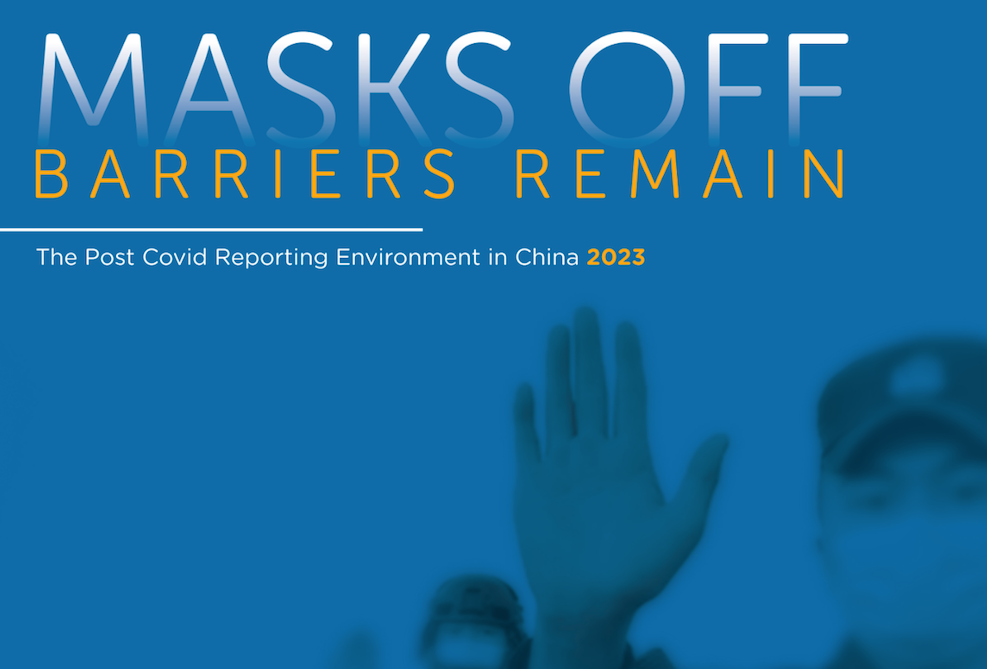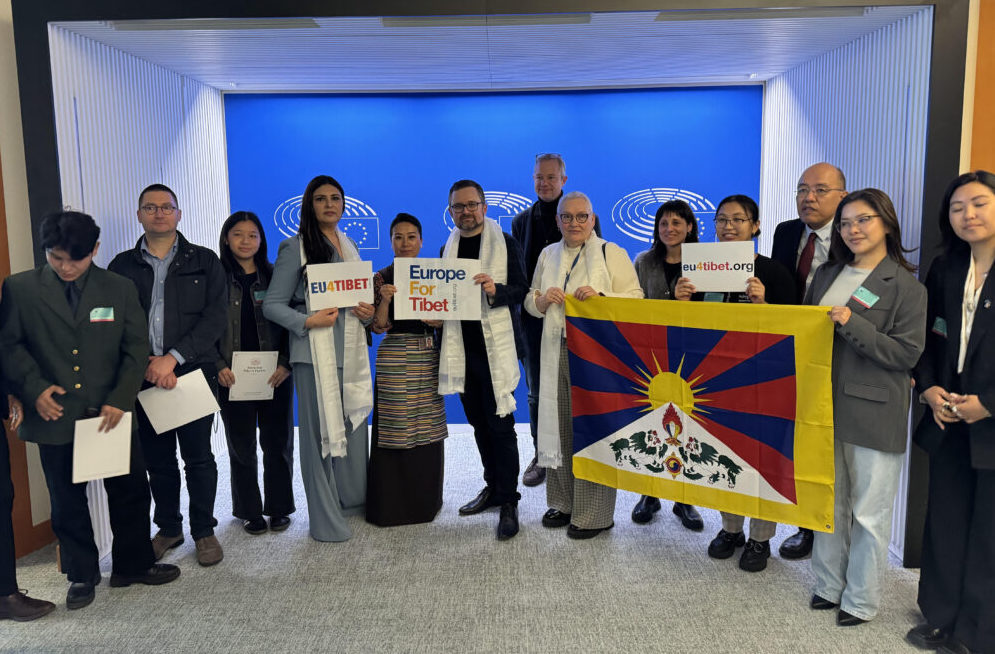Today, on this momentous occasion of the 48th anniversary of the peaceful uprising day of the Tibetan people for their freedom, the Kashag of the Central Tibetan Administration, remembers and salutes those brave men and women who sacrificed their lives for the cause of Tibet and to those who are still suffering. The Kashag also extends its warm greetings to all Tibetans in and outside Tibet.
His Holiness the Dalai Lama always counsels all Tibetans to hope for the best, and prepare for the worst, which is a very valuable piece of advice that all the Tibetans in and outside Tibet must take it to heart. Within the past six decades or so, unheard-of damages were done to Tibet and its inhabitants and the unprecedented political tragedy has brought the Tibetans, their religion and culture at the verge of extinction. Given China’s huge population, its political, economic and the military power, the issue of Tibet should have become extinct long ago. However, on the contrary, the sanctity of Tibetan tradition and by the grace of His Holiness the Dalai Lama, Tibetan culture and religion has flourished all over the world, and receives solidarity support from everywhere. Consequently, the issue of Tibet is coming closer to a resolution.
Particularly, the polity of exiled Tibetans has been transformed into genuine democracy which has strengthened the structure of the administration. Since all the supreme heads of religious traditions are thriving in exile, their foresight and guidance have not only helped us in the efficient management of our religion and culture, but also afforded every young Tibetans in exile to benefit from both traditional and modern education. Moreover, we are in the process of implementing the basic education policy in the exile Tibetan schools. It is commendable that exile Tibetans living elsewhere, while securing their future, work dedicatedly and tirelessly towards our common cause. And more importantly, Tibetans living inside Tibet, despite unthinkable hardship, continue to pledge their deep faith and belief in His Holiness the Dalai Lama and able to sustain and make known the unique identity of the Tibetan people to the world with courage and determination. This is also a matter of pride. This is because of the grace of His Holiness the Dalai Lama and thus, we offer our gratitude along with our prayers for His Holiness the Dalai Lama to live for hundreds of eons.
The year 2007 (Fire-Pig Year) is significant as His Holiness has completed six full cycles of 12 zodiac signs, which is something auspicious as well as ominous. And to remove any untoward hurdles, a series of prayers that came forth from the divine prophecy and as per Tibetan astrology are being performed. Apart from that, on the 25th day of first Tibetan lunar month, 14 March 2007, all the Tibetans in and outside Tibet will make a long-life prayer offering to His Holiness the Dalai Lama. The Kashag, therefore, requests all the Tibetans and friends of Tibet in their respective places to engage in meritorious activities and pray for the long life of His Holiness the Dalai Lama and the fulfilment of all his wishes.
The traditional Tibetan cultural heritage has spread all over the world and there is no imminent danger of extinction, but the political repression and the immigration of large number of other nationalities inside Tibet continues to undermine Tibetan race, culture and language. At this moment, all the clergy and lay Tibetans inside Tibet should have greater concern than ever before and must make effort to protect ones’ own land. The younger generation should strive for the overall education and specifically it is highly important to impart the traditional Tibetan education. So far, many schools and training centers are established and managed in different parts of Tibet, and such contributions are greatly appreciated. It is also encouraging to see that such works will be carried out in future with the same fervor.
Likewise, the maintenance of the purity of Tibetan race and to have a healthy mind and body of all the Tibetans is also an important national issue. Because of the burgeoning immoral activities lately in the Tibetan towns and cities, resulting in the spread of today’s pandemic diseases like AIDS, tuberculosis and cancer, which are hard to recover from. Care should, therefore, be taken to prevent such kind of modern diseases.
For the sustenance of Tibetan nationality and its tradition, it is important to protect the natural environment, forests, medicinal plants, wildlife, birds species, etc. and the beautiful biodiversity of the Tibetan plateau, and make endeavour for its sustainability by not polluting the ecology. Care should be also taken so that the major rivers having its origin in the Tibetan plateau and their tributaries flowing into the numerous down-stream countries, similarly, streams, lakes and ponds and spring waters, which are the purest form of water bodies in the world, should not be depleted from its source by constant pollution and misuse. Likewise, the protection and conservation of historically-significance monasteries and temples, statues, sacred religious scripts and shrines, monumental buildings, other heritage sites, antique artifacts as well the protection and sensible utilisation of natural resources so that it could be used for the interest and benefits of the Tibetan nationality, as endorsed in the national regional autonomy law, is of vital importance. Tibetans in Tibet should thus shoulder the responsibility as done in the past.
Exiled Tibetans are not driven out of their nation by some natural calamities but rather as political refugees. We thus, have the responsibility to carry the struggle of the Tibetan people. It is needless to say that every individual Tibetan living in free countries should act as spokespersons of the six million Tibetans languishing under oppression. We have to strive from all aspects to make aware of the Tibetan religion and culture, its political history, present status and future aspirations to all over the world. Also we should maintain our cultural traditions and language, to promote the traditional Tibetan wisdom and to emulate and absorb the virtues of modern education and society, and especially, to study and understand the concept of democracy thoroughly and work towards applying it to our experience of exile establishment to make it a truly stable and sustainable one.
Similarly, by avoiding practice of regionalism and religious sectarianism respectively among different regions and religious traditions, we should unite under the supreme leadership of His Holiness the Dalai Lama, harbouring a deep belief and confidence in mutually beneficial Middle-Way Approach and non-violence as a means to struggle without losing the unity even though it takes much time. Until and unless Tibetan issue is resolved, we must have the determination, courage and plan of action to carry forward our struggle and keep it alive. Truth and non-violence are our strength, which needs to be safeguarded. If we could do so, the larger population of the world will back us, for truth always prevail in the end.
Within the Tibetan community in and outside Tibet, there were quite a number of Shugden propitiators who do so without having proper understanding and knowledge. However, as a result of His Holiness the Dalai Lama’s spiritual advice, the number has significantly come down to a negligible one. Nevertheless, for the past several years, some personnel of the People’s Republic of China forced the Tibetans to propitiate Shugden deity with their vested political motive. These Shugden propitiators are bought with cash and kind, and are being employed to carry out various activities which they still pursue to hamper the long-term interest of the Tibetan people. There seems to be plan of increasing the use of Shugden propitiators in campaigns to oppose and vilify His Holiness the Dalai Lama in different places in Tibet and China in the near future. Hence, this issue has been transformed from a mare blind faith into a malicious political exercise. We Tibetans must not be careless about this and be always alert to challenge the situation when needed.
Since 2002, the envoys of His Holiness the Dalai Lama and their counterparts of the People’s Republic of China have had five rounds of dialogue which has enabled us to understand each other’s position and to express the aspiration of the Tibetan people. His Holiness the Dalai Lama is sincerely willing to continue the dialogue process further, but to our surprise and dismay some local officials of Lhasa and some personnel of the central United Front Work Department launched baseless derogatory remarks against His Holiness the Dalai Lama and made irresponsible statements, objecting to the Middle-Way Approach starting from the May last year. This disappointed all the Tibetans and affected the environment of the dialogue process. It is hard to assess the reasons behind such sudden outburst. However referring to the various sources of information, as it is suggested that the reasons appear to be due to popular adherence to His Holiness’ spiritual advices on propitiating of deities and his appeal to stop the use of hides and fur of endangered species by the Tibetans inside Tibet. Many sensible Chinese appreciated and acknowledged their support for the Middle-Way Approach being a mutually beneficial policy both for Tibetans and Chinese were some of the reasons as told to us. Provided this is the case, and if it were meant to provoke the Central Tibetan Administration and its people expecting similar reaction reflects their narrow-mindedness.
The essence of Middle-Way Approach is to have a genuine national regional autonomy, in letter and spirit, within the constitutional framework of the People’s Republic of China. There isn’t iota of change in it which we have made clear time and again. Our two uncompromising standpoints for any decision on the future status of Tibet are: firstly, since the historical events were issues of past, it will not form the basis for resolving the future status of Tibet, secondly, our aspiration for a single administration for all the Tibetans. We have made this clear on number of occasions and are reiterating it once again. His Holiness the Dalai Lama and the Central Tibetan Administration acknowledge the need to resolve the issue of Tibet through dialogue with concerned officials of the People’s Republic of China within the framework of the constitution. Therefore, we have always maintained faith in dialogue despite many setbacks. In the international community, there are many justice-loving, sensible individuals who engage themselves in activities that support the human rights, religion and culture, environmental protection, justice and equality and so forth. Likewise, numerous educated people in the international community also support and share their solidarity with the Tibetan cause, which is because of their positive human values for the promotion of the world peace and it is not the case of internationalising the Tibet issue. It is needless to say that if the issue of Tibet could be resolved mutually through dialogue, the international outcry for Tibet will automatically disappear. To put in a nutshell, whatever changes may occur in the actions and speeches of officials of the People’s Republic of China, His Holiness the Dalai Lama and the Central Tibetan Administration shall remain steadfast on the Middle-Way Approach.
Sooner the issue of Tibet would reach a conclusive solution, the better it is for both the Tibetans and Chinese. Thus, we are doing whatever in our means towards reaching a solution. Moreover, we will make every endeavour for continuation of dialogue in the future, and determined to create conducive atmosphere for such dialogue as before. Even if the Tibetan struggle continues for a long time, the Tibetans inside and outside Tibet will strive to keep the struggle alive from generation to generation with firm determination and courage until it is resolved. Moreover, it is apparent to all that we have already in place a sound administration and a complete plan of action to carry forward the Tibetan struggle. If the People’s Republic of China still fails to resolve the Tibet issue soon through a peaceful negotiation process, His Holiness and the Central Tibetan Administration certainly cannot be held responsible for the same.
Taking this opportunity, the Kashag on behalf of Tibetans inside and outside of Tibet, convey our gratitude to the Indian populace and the officials of the Central and State governments for their warm hospitality throughout these long years. The Kashag also would like to pay its gratitude to the justice and peace loving international community for their concern towards the Tibetan cause.
May His Holiness the Dalai Lama live for hundreds of eons and all His wishes be spontaneously fulfilled. May the truth of the issue of Tibet also prevail soon.
The Kashag
March 10, 2007
N.B. Translated from the Tibetan original









